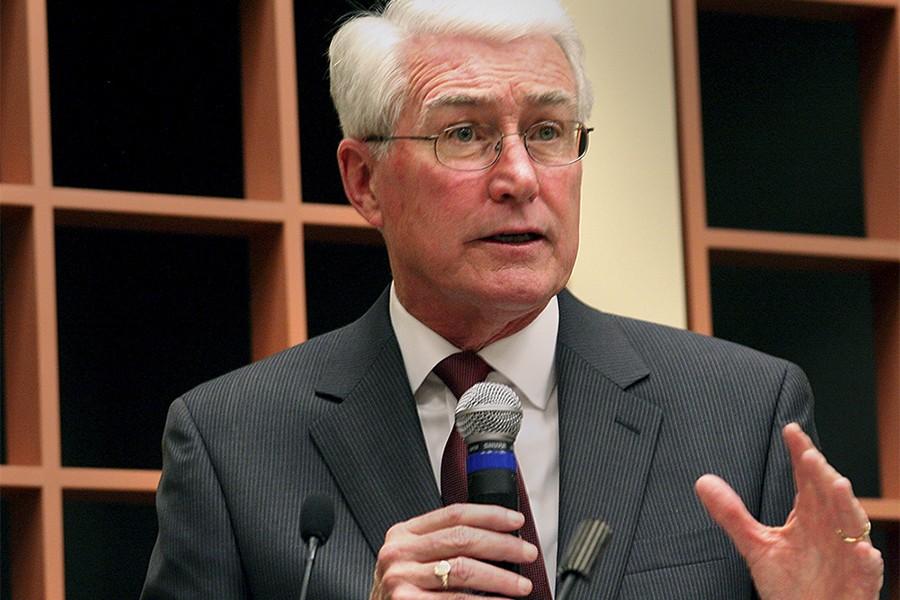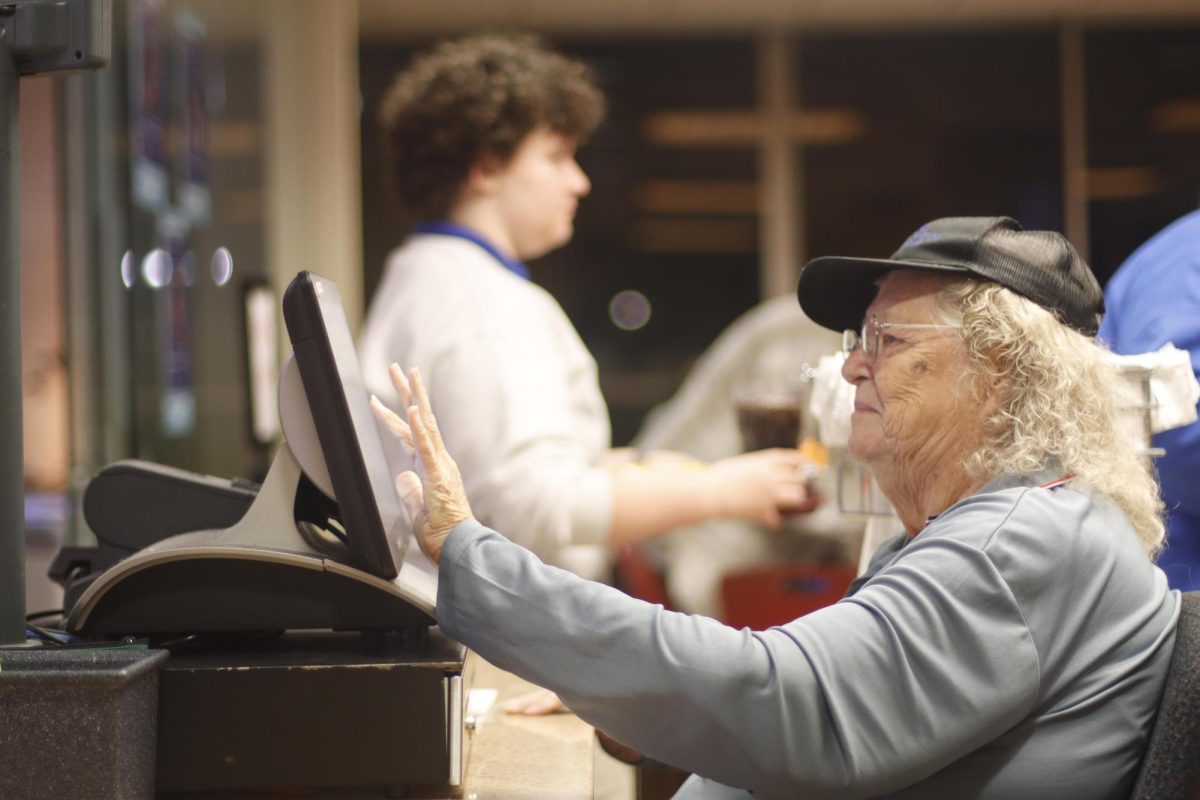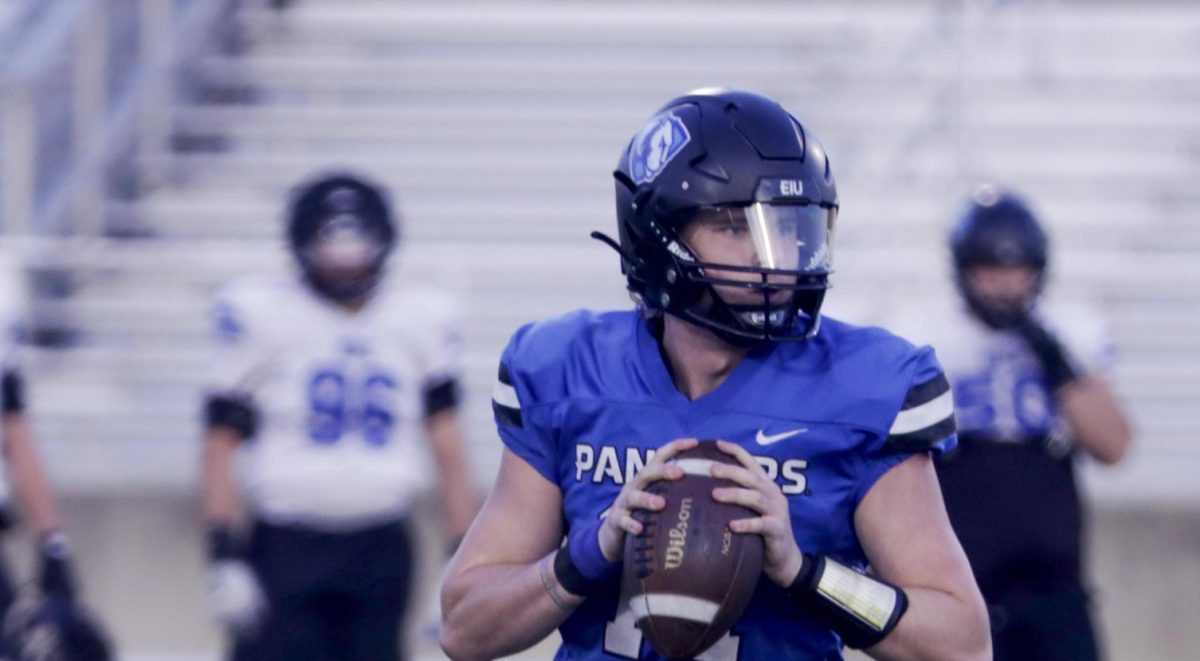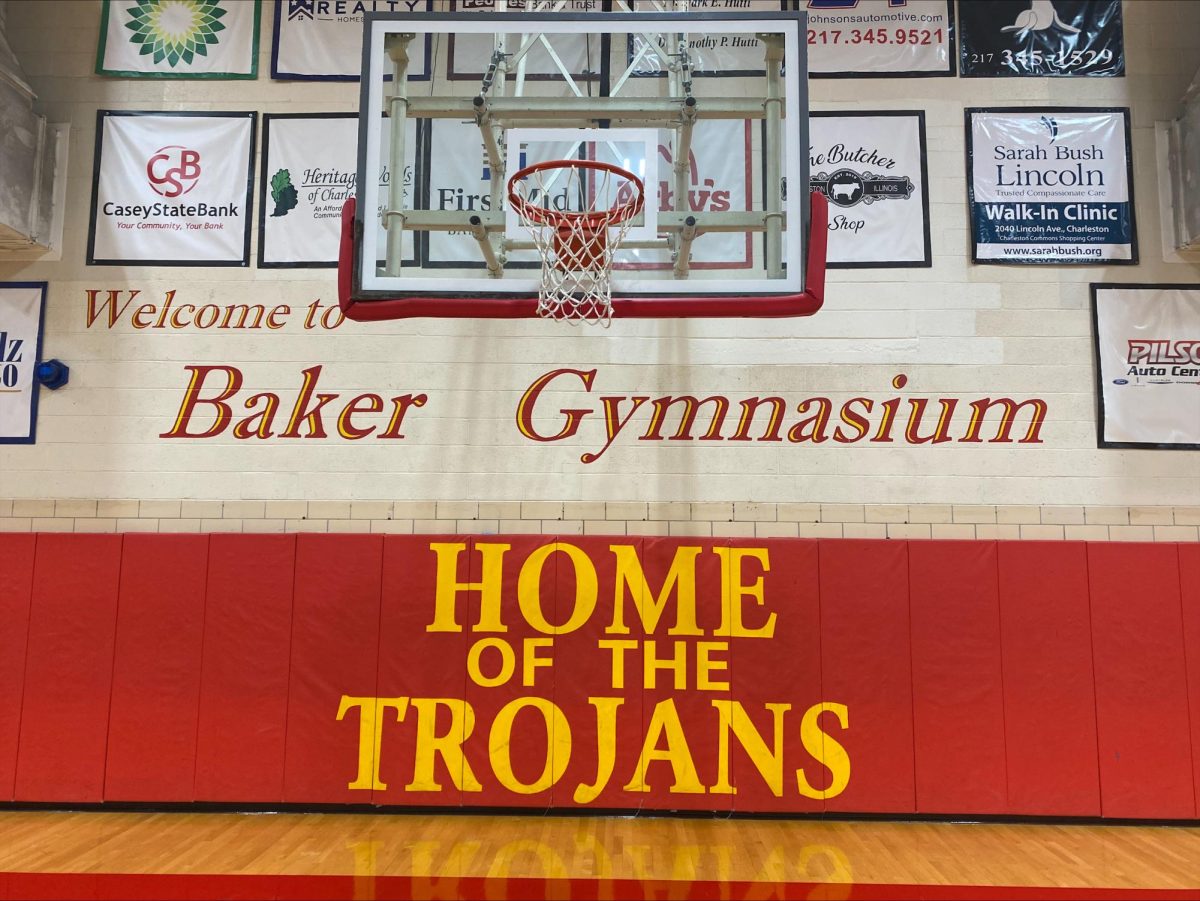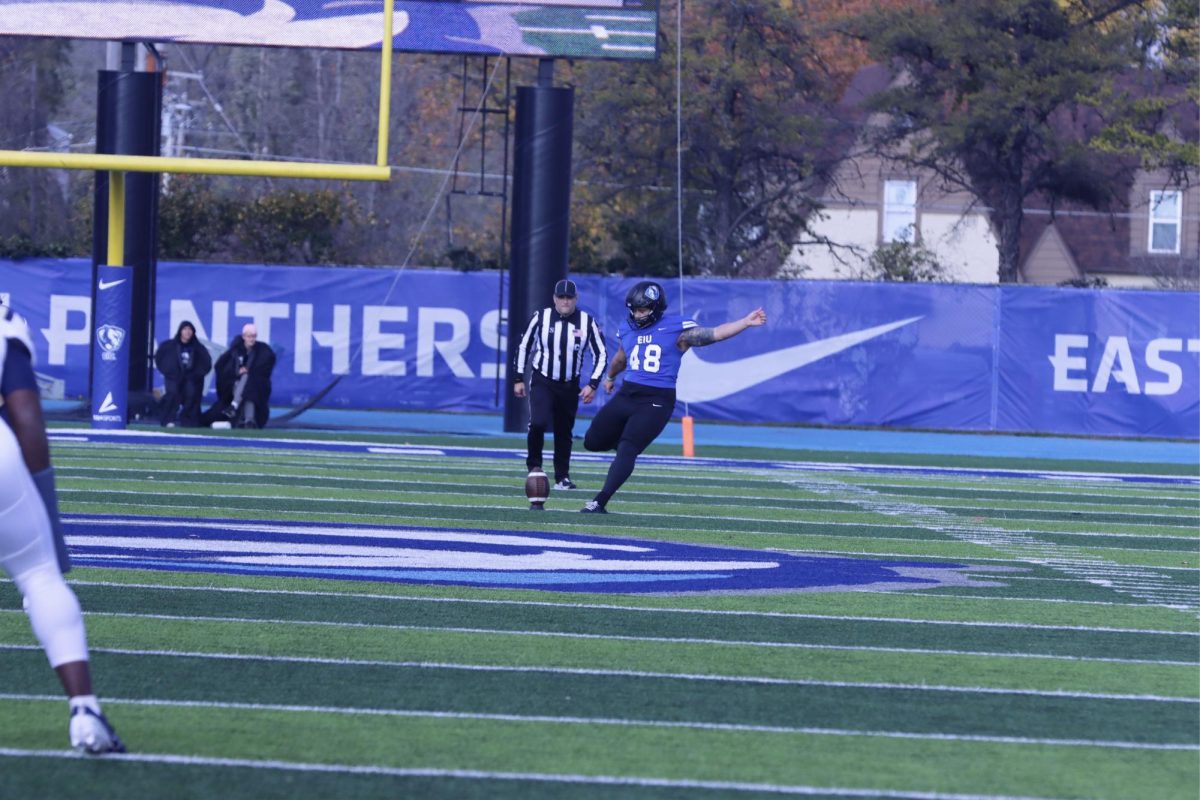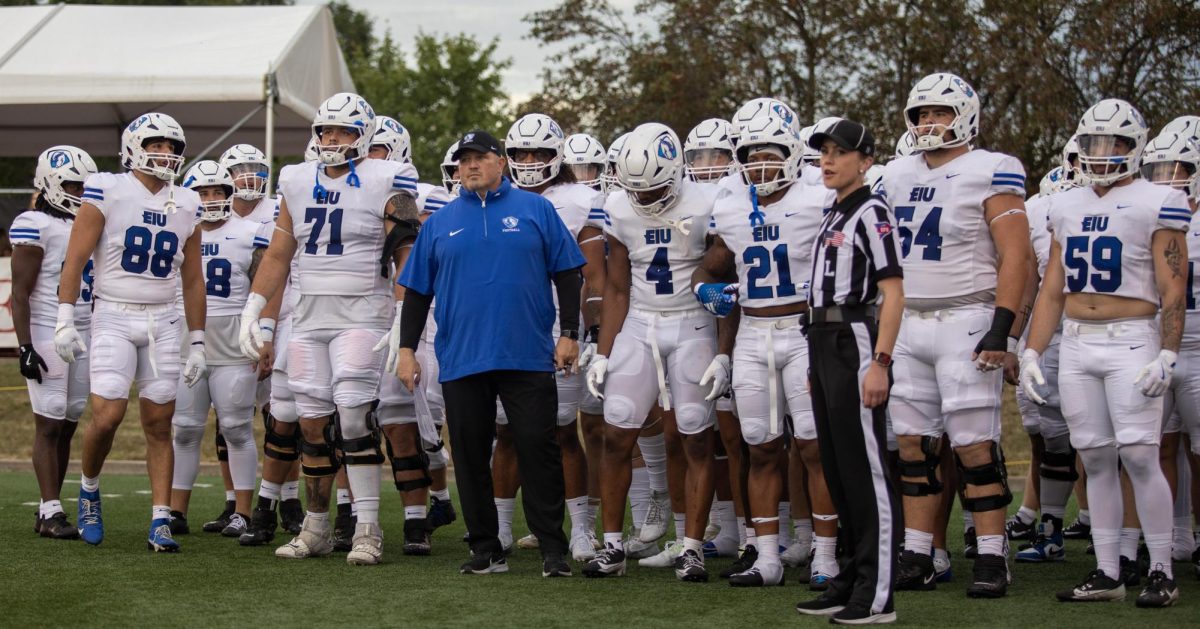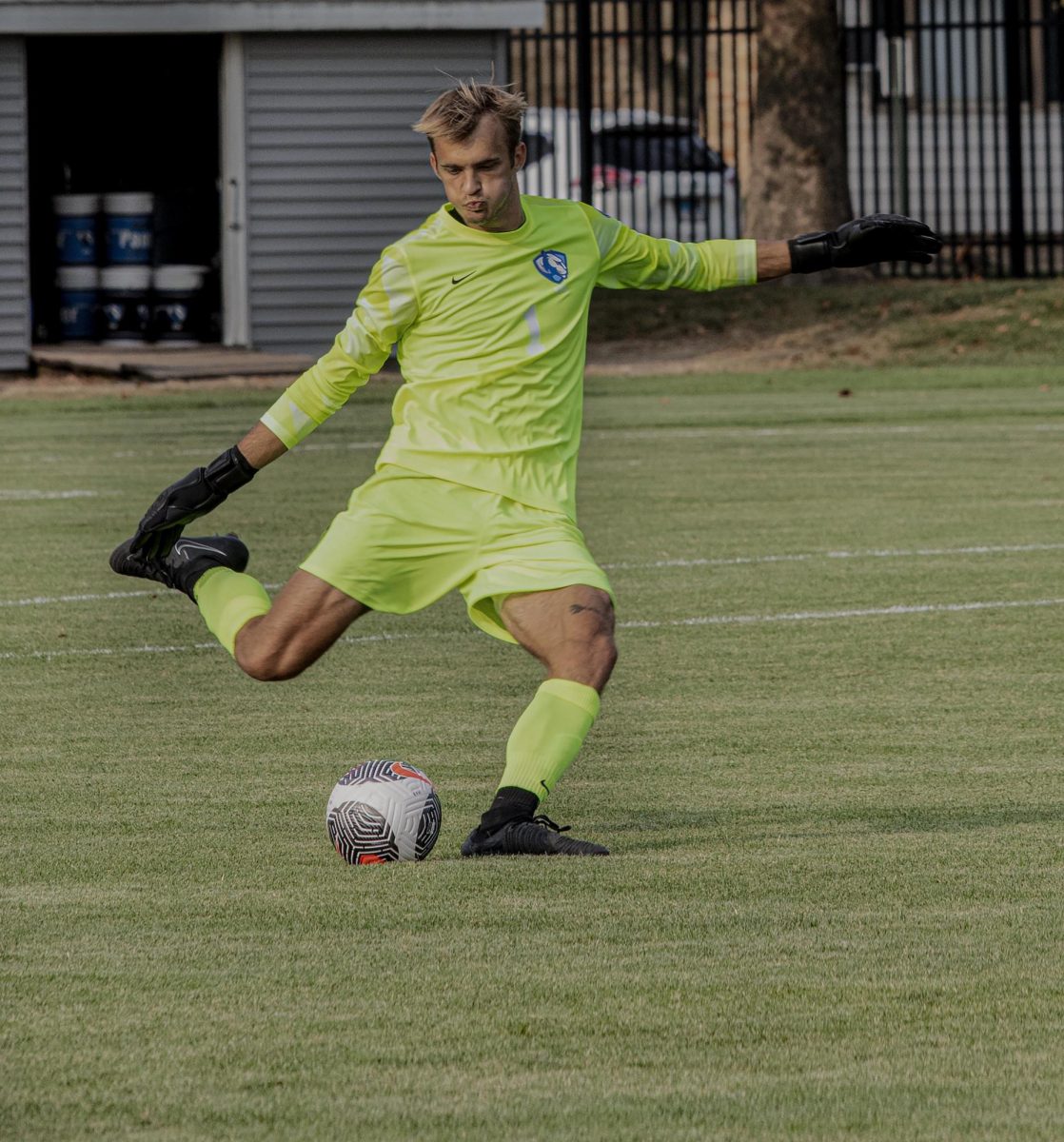Members of Eastern’s LGBTQ community talk Trump
December 5, 2017
As the Trump administration wraps up its first year in office, some members of the LGBTQ community, including those at Eastern, cannot help but notice an attack on their rights as citizens of the United States.
Chris Rego, a senior theatre arts major who identifies as gay, said when Trump took office, he immediately felt concerned for his sisters, as he also was worried about the president’s stand on women’s rights.
“He’s basically pushing women’s rights and gay rights back a couple of decades,” Rego said.
One of the key issues the Trump administration has focused on is the Religious Liberty Accommodations Act.
This House bill legalizes discrimination if it is motivated by a belief in marriage being a union between a man and a woman, that sexual relations can only take place within such a marriage or that gender is an unchanging biological characteristic.
The law was passed last year, but was immediately blocked by a federal judge. However, in October a circuit court reversed the ruling, allowing businesses and organizations to discriminate on the basis of sexual and gender identity.
Missy Stone, a senior public relations major who identifies as a lesbian, said issues involving discrimination in the past year are intimidating and scary to think about.
“I think it shows that the government’s not taking the ‘everyone to be treated equal’ thing into consideration,” Stone said. “Everyone should have the same rights, but they’re deciding who should and should not receive the same rights as someone else, which is scary because it’s a snowball effect.”
Rego said he does not think anything can justify discrimination.
“It’s the fact that no one should be judged for who they are and what they do and there’s no justification, be it religion or government,” Rego said.
As well as enforcing discrimination based on the Religious Liberty Accommodations Act, Sessions also reversed a federal government policy that said transgender workers were protected from discrimination under a 1964 civil rights law.
Sessions says that the law only covers discrimination between ‘men and women’.
In addition, Trump withdrew federal protections of transgender students and issued a policy implementing a new administration ban on transgender people in the military.
Madalyn Schoonover, a sophomore public relations and elementary education major who identifies as asexual, said she does not even know where to start when it comes to these policies.
“They’re saying that it’s only protected for men or women, but whether you believe in the idea of being transgender or not, they’re still men or women,” she said. “They still are a human being, so obviously they deserve to be protected, and they deserve, if they want to fight for our country, to fight for our country.”
Austin Mejdrich, a political science graduate student who identifies as queer, said these orders have two main implications: they will do harm to LGBTQ people, specifically transgender people, and the nation, as well as further the “otherization” of LGBTQ people and other minority groups.
“I think that many people in the LGBTQ and ally communities got a little comfortable after same-sex marriage was legalized. It seemed like what had been the single issue of the mainstream LGBTQ community was settled and there weren’t any serious challenges to that victory,” Mejdrich said. “Now, with Trump’s policies, I think the community is seeing that the ground is a little shakier than what was originally assumed.”
With all of these executive orders and discriminatory laws in place, Stone said she think Eastern has done a good job making sure people feel included.
“I know there are tons of minority groups on campus that are inviting people to come and get that knowledge, get experience with different things, because that helps,” Stone said. “Just having the knowledge helps.”
Rego said there are still times he does not feel safe on campus.
“Political freedom shouldn’t be for hate and people should feel comfortable on campus as well as in their daily lives,” Rego said. “I feel like people tend to forget that safety is an important thing here, no matter who you are, what you study or what you practice.”
Mejdrich agreed, stating it’s not just important to stay educated on mainstream issues, such as marriage equality and religious freedom, but all issues within the LGBTQ community.
“We obviously have to push back against discriminatory officials and their policies, but being against them isn’t enough,” Mejdrich said. “We have to continue to work together and listen to everyone’s voices on an equal level if we’re going to formulate genuinely successful strategies to continue advancing LGBTQ rights in the age of Trump.”
Peighton Hinote can be reached at 581-2812 or pewood@eiu.edu.




